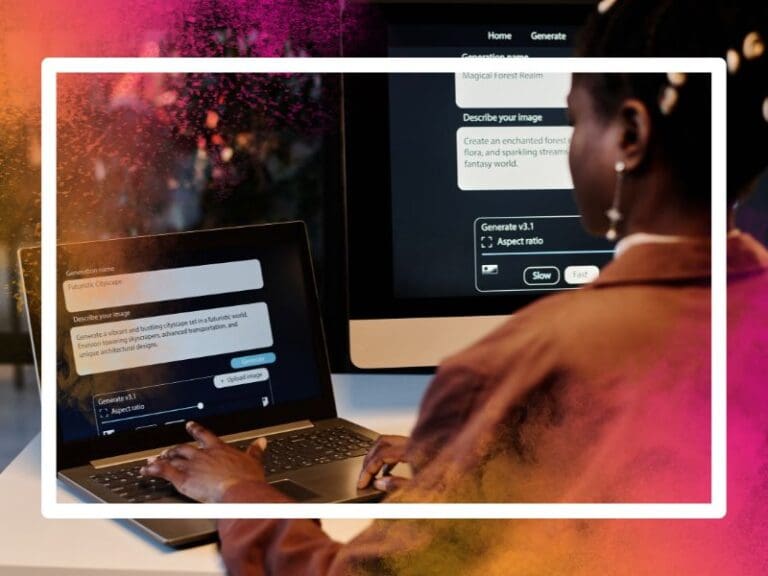In a world increasingly driven by artificial intelligence, we stand at a defining moment.
 AI has the power to reshape industries, redefine workforces, and create new opportunities—but more importantly, it holds the potential to foster a more inclusive and equitable global society. However, it also carries the risk of reinforcing existing inequalities if not managed responsibly. The question is no longer whether AI will impact our world, but how we ensure it does so in a way that benefits all.
AI has the power to reshape industries, redefine workforces, and create new opportunities—but more importantly, it holds the potential to foster a more inclusive and equitable global society. However, it also carries the risk of reinforcing existing inequalities if not managed responsibly. The question is no longer whether AI will impact our world, but how we ensure it does so in a way that benefits all.
When designed and deployed responsibly, AI can be a powerful force for reducing bias, broadening access to critical services, and enabling fairer decision-making across industries. However, without oversight, it can also replicate or amplify societal prejudices, making ethical AI governance essential.
One of AI’s most significant contributions lies in removing human bias from decision-making processes. In hiring, for example, AI-driven platforms can assess candidates based on skills and competencies rather than subjective judgments, leading to fairer recruitment practices. In theory, a well-designed AI model should prioritise qualifications over factors like gender, age, or ethnicity. However, AI is only as objective as the data it is trained on. If trained on historically skewed datasets, it risks perpetuating discrimination rather than eliminating it. Businesses must therefore remain vigilant, refining their AI systems to ensure they promote diversity and fairness rather than reinforce past biases.
Beyond corporate hiring, AI is transforming access to essential services, bridging gaps that have historically disadvantaged underrepresented communities. In education, AI-powered platforms can tailor learning experiences based on individual needs, breaking down traditional barriers to knowledge. From adaptive learning software that personalises education for students with disabilities to AI-driven language translation tools, technology is making education more inclusive than ever.
In healthcare, AI is revolutionising patient care by improving early diagnostics, automating administrative processes, and providing virtual health assistants—especially in remote or underserved areas. AI-driven medical imaging is detecting diseases earlier and with greater accuracy, giving people better chances at life-saving treatment. Yet, challenges remain in ensuring these technologies are accessible, reliable and do not inadvertently introduce new biases into patient care.
The impact of AI extends to financial inclusion as well. In emerging markets, AI is helping millions access financial services for the first time. AI-powered credit assessments—based on alternative data like mobile phone usage and transaction history—allow people without traditional banking access to secure loans and grow businesses. The result is greater economic empowerment for communities historically excluded from financial systems.
With great power comes great responsibility. The widespread adoption of AI cannot be left to pure technological evolution—it requires proactive governance and ethical oversight. Businesses that integrate AI into their operations must take an active role in monitoring, auditing, and refining their AI models to ensure fairness and transparency.
Governments, too, have a crucial role to play in setting policy frameworks that promote AI for good. Regulation should not stifle innovation but guide it toward ethical and socially responsible applications. Ensuring AI systems are auditable and explainable, encouraging bias-free datasets for training models, and promoting AI that supports rather than replaces human decision-making are critical steps in building a responsible AI ecosystem.
Ultimately, AI is a tool—not a replacement for human judgment, empathy, or ethics. The best AI systems are those that augment human capabilities rather than automate them away. The future of work, healthcare, education, and financial services will be shaped by collaboration between AI and human expertise, ensuring that technology serves society rather than dictates its path.
As AI continues to evolve, its impact will be shaped by the choices made today. It has the potential to be a powerful tool for inclusion and equality, but only if developed and governed with care. Achieving this balance requires collaboration between businesses, policymakers, and society at large—to ensure AI expands opportunities rather than limits them and supports progress that benefits all rather than a select few.
Businesses, policymakers, and society at large have a shared responsibility to ensure AI is used as a force for good—one that expands opportunities rather than restricts them, amplifies diverse voices rather than silences them, and drives progress for all rather than a select few.







